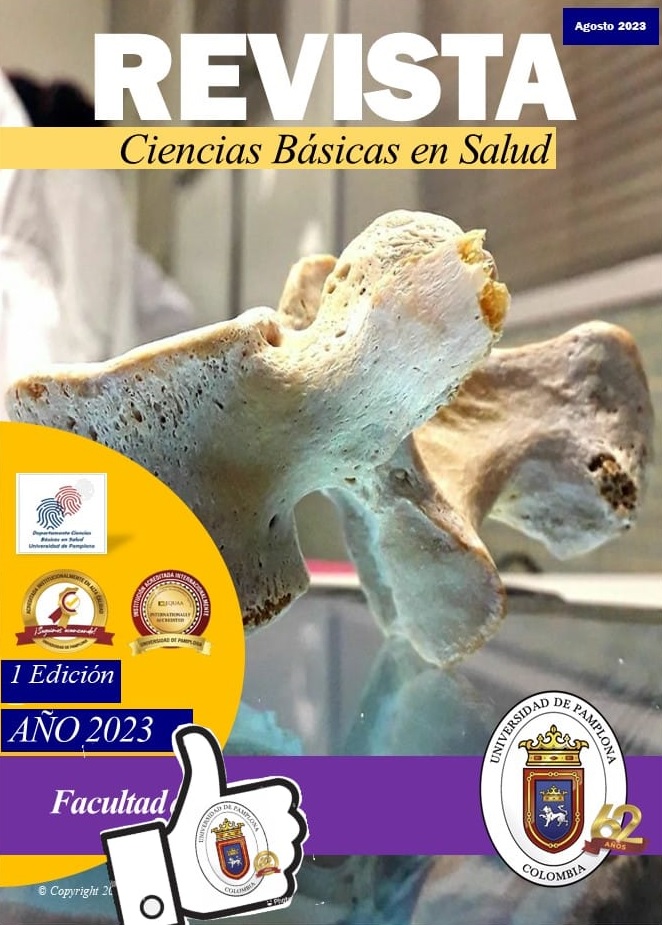Reading-writing process in education by cycles Comfanorte school, municipality of los Patios
DOI:
https://doi.org/10.24054/cbs.v1i1.2514Keywords:
Education by cycles, Didactic, Reading-writing processAbstract
The teaching work in the COMFANORTE school at the level of education by cycles, has an added value for the community and population of the Region that has not been able to complete their studies in the regular period and time as designated by the Ministry of Education. National. The work that is carried out through the pedagogical practice and the Participatory Action Research process (IAP), is carried out through a main objective to identify the level of language and writing of the students of cycle I, II and III (corresponding to grades 1, 5 of primary school and 6 of middle or secondary school), and design material and instruments adjusted to the learning level of each of the students in the cycles. In order to design the work plan and the strategies to be developed on the reading-writing process, the research proposes to analyze the abilities that each student has for the construction of meanings and the use of grammatical categories, making the process more flexible through didactic strategies and articulating the activities to the interaction and teamwork, to strengthen each learning within the space and time available per week. The design of activities articulated to the didactics allows the development of oral and written language from the identification of the difficulties that are observed with the participation between the students and the teacher.
The results of the research generate the construction of the pedagogical strategies used for the teaching process, the space to carry out the activities and the interaction with the work group, it is part of the population between 15 and 65 years old, with difficulties to communicate, interact and socialize in the classroom; In conclusion, it is possible to analyze and interpret the meaning that students give to the reading-writing process, to overcome obstacles and achieve the purpose of learning.
Downloads
References
Adams, M. y Bruce, B. (s.f.) Conocimiento de fondo y comprensión de la lectura.
Ausubel, D. (1983). Teoría del Aprendizaje Significativo. Fascículos de Ceif, 1-10.
Camps, A. (2012). La investigación en didáctica de la lengua en la encrucijada de muchos caminos. Revista Iberoamericana.
Camps, A., Guasch, O. y Ruiz Bikandi, U. (2010). La didáctica de la lengua (las lenguas) y la literatura. Revista Textos. Didáctica de la lengua y de la literatura, n.º 55, pp. 71-80.
Comenio, J. (2006), Didáctica Magna. Editorial Porrúa. México.
Espinoza Gonzalez, Mercedes Elizabeth (2018) Estrategias metodológicas con el uso del juego para mejorar la lecto escritura en el séptimo grado de la escuela “IV Centenario”, del Cantón Loja, en el período académico 2017 – 2018. [Tesis previa a la obtención del grado de licenciada en ciencias de la educación; mención: educación básica, Universidad de Loja, Ecuador].
Espitia Raba, Miguel Ángel (2020) El método y la formación en la Didáctica magna. Colección filosofía y enseñanza de la filosofía, Editorial Universidad Pedagógica Nacional, p.206
Gómez Contreras, Carolina (2016) Los emoticones al servicio de la expresión oral, desde el aula para la vida [Tesis Licenciado en Educación, Universidad de las Américas, Ecuador]
Hernandez Capera, Patricia (2014) La didáctica: un acercamiento al quehacer del docente. Revista Papeles, 6(11), 98-116
León Z., Jenny y Noel F., Jackelinne (2021) Comprensión Lectora: relación con el Aprendizaje significativo [Trabajo de titulación previo a la obtención del título de Licenciada en Educación General Básica. Universidad de Loja, Ecuador].
Montealegre, R., y Forero, L. A. (2006). Desarrollo de la lectoescritura: adquisición Y dominio. Acta Colombiana de Psicología, 25-40.
Piaget, Jean (1961/1987). La formación del símbolo en el niño. México: Fondo de Cultura Económica.
Runge Peña, Andrés Klaus (2013) Didáctica: una introducción panorámica y comparada. Itinerario Educativo, (62), 201-240
Vygotsky, L. S. (1993). Pensamiento y lenguaje. Obras Escogidas, tomo 2, [Trabajo original publicado 1934]. Madrid: Visor, p.348.
Vigotsky, L. S. (1998). Pensamiento y lenguaje. Barcelona: Ediciones Fausto
Downloads
Published
Issue
Section
License
Copyright (c) 2023 Revista Ciencias Básicas en Salud

This work is licensed under a Creative Commons Attribution-NonCommercial 4.0 International License.







